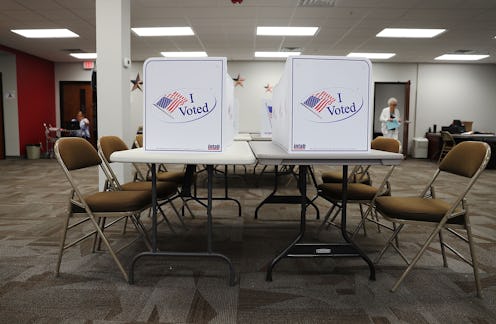News
How Electors And Congresspeople Are Different
As Election Day draws near, we’re reminded of the strange fact that we are not actually casting our votes for president, but for electors who will cast their votes for president — because why should anything in the world of politics be simple? The wonky nature of the Electoral College is something worth digging into, given the important role the body plays in determining the outcome of elections. But who are these people? Are members of Congress electors?
You may know that each state has a number of electors equal to the number of representatives and senators it has. However, that doesn’t mean that those members of Congress serve as electors. Actually, they aren’t allowed to. Article II Section I of the Constitution, which establishes the Electoral College, states the following:
Each State shall appoint, in such Manner as the Legislature thereof may direct, a Number of Electors, equal to the whole Number of Senators and Representatives to which the State may be entitled in the Congress: but no Senator or Representative, or Person holding an Office of Trust or Profit under the United States, shall be appointed an Elector.
So nobody holding federal office can serve as an elector. Beyond that, the Constitution leaves the choice of who fills the position pretty open-ended for states. Political parties choose their slates of electors at the state level, and rules for doing so vary by state.
Whom do the parties choose? Generally, people who have demonstrated commitment to the party. They could be state or local (but not federal) elected officials, activists, or party leaders. If a party’s presidential candidate wins a plurality of the vote within a state, then all that party’s electoral votes go to the candidate (and the other party’s electors are moot). The exceptions to this are electors in Nebraska and Maine, which are allocated according to which candidate wins on the congressional district level. (Fun Fact: Maine has never split its votes, since every candidate to win the state has won in both its Congressional districts. Nebraska only split its votes once.)
When you vote for a presidential candidate, whether early or on November 8, you'll be casting your ballot for a set of electors equal in number to your state's number of representatives and senators, and their names may or may not appear on the ballot. Members of Congress will not be among the electors who officially decide the election.
